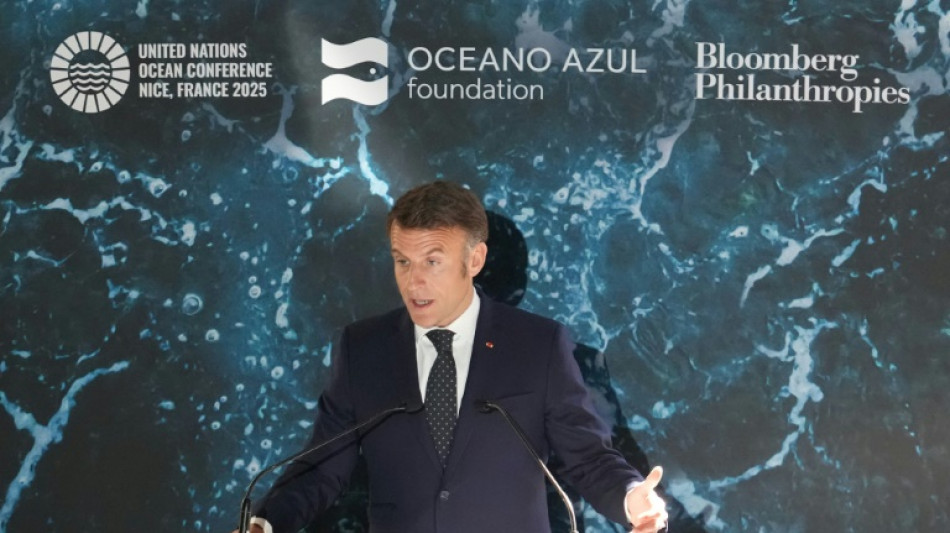
Macron vows to defend science as host of UN oceans summit

French President Emmanuel Macron on Monday vowed to defend science from attacks by "major powers" as he tried to rally global support behind an upcoming UN summit on ocean conservation.
The third UN Oceans Conference (UNOC) in the French city of Nice in June comes as the United States guts funding for environment programs and retreats from global efforts to combat climate change.
In a speech in Paris to set the summit agenda, Macron singled out Washington's funding cuts for environment research and said Nice would "reaffirm our commitment to scientific work".
"We are also living in a period where many major powers are halting their funding to public research organisations and contesting the validity of scientifically established results," he said.
"In Nice... no action regarding the ocean should be taken without being guided by science," Macron told national leaders, conservationists, and scientists at the SOS Ocean Paris Meeting ahead of Nice.
This included on the hot-button topic of deep-sea mining for critical minerals, Macron said, of which France has taken a "precautionary" view until the science around such exploration was better established.
The Nice summit, which dozens of heads of state are expected to attend between June 9 and 13, will be preceded by a conference bringing together 2,000 scientists from around 100 countries.
Macron outlined eight priorities for the main event in the French Riviera, including expanding ocean areas under international protection, tackling pollution and overfishing, and cleaning up marine transport.
Ahead of Nice, he also wants to grow from 21 to 60 the number of nations that have ratified a treaty on high seas governance so the agreement can finally come into force.
"We're not there yet... There's still a lot of work to be done," he said of the treaty aimed at plugging gaps in the governance of international waters.
Earlier Monday, the OECD released a report warning that the remarkable growth of the ocean economy over the past 25 years could stall without stronger international protections and governance.
It identified expanding marine territorial claims by nations, illegal fishing operations, and climate change as among the major threats to this future growth.
- Walk the talk -
Diplomatic efforts to broker global agreements for the environment have struggled in recent months.
Many nations were left deeply unsatisfied with the outcome of the last UN climate meeting in November while negotiations for a treaty on plastic pollution -- a major source of marine litter -- have stalled.
Environment groups called on Macron to encourage nations to actually fulfil their existing conservation pledges before making new ones in Nice.
"President Macron should make it clear to leaders that they should not come to make more lofty pledges," Enric Sala, director of National Geographic's Pristine Seas project, told the gathering in Paris.
Marco Lambertini, Convenor of the Nature Positive Coalition, said Nice had the "fantastic opportunity to look and feel different" from other environment summits.
"Not a conference where... once again we have a catwalk of governments and businesses announcing commitments," he said.
Outside the conference -- attended by the Prince of Monaco, former US vice president Al Gore, and other high-profile figures -- Greenpeace activists unfurled a trawling fishing net and lit flares in a brief protest.
Kirsten Schuijt, Director General of WWF, said it was critical that civil society groups also went outside the conservation bubble to rally support with other stakeholders before Nice.
"Otherwise the UN Ocean Conference is going to be like so many of our global meetings and discussions, where we don't actually come away with action that hits the ground," Schuijt told AFP.
np-vl/yad
W.Baxter--TNT